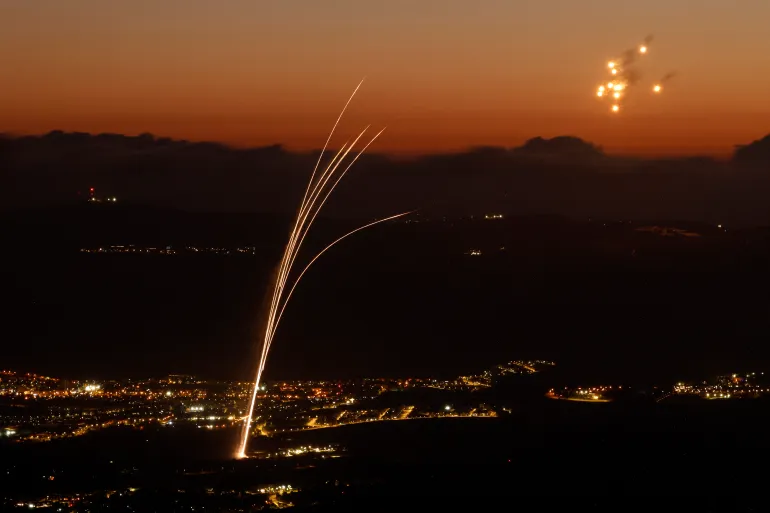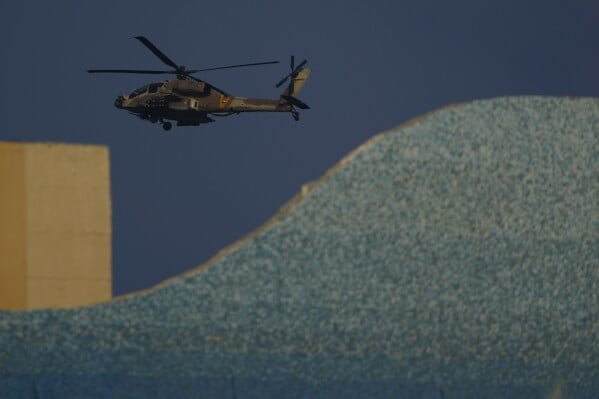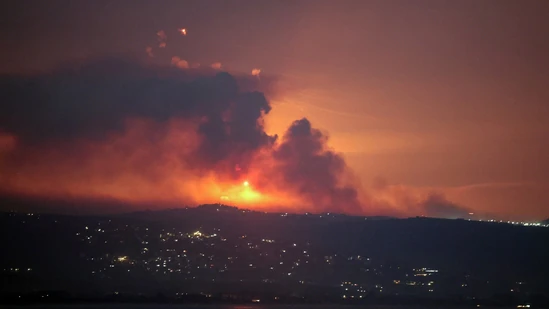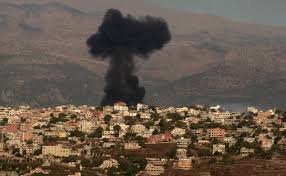Table of Contents
For decades, tensions between Israel and Hezbollah have been brewing, and it has finally pushed the button again with both sides exchanging another series of retaliatory strikes. The conflict, rooted in decades of geopolitical struggle, dramatically increased a few days ago into a full-blown regional crisis. The latest Israeli military attacks on Lebanon and Hezbollah’s responding rocket attacks raised many eyebrows in world opinion, with Israel declaring a state of emergency for 48 hours. What follows is an article that discusses recent developments, historical context, and possible implications of the crisis.
The Escalation: Israel Strikes Lebanon, Hezbollah Responds
The latest violence erupted after Israel carried out several airstrikes that targeted various positions in Lebanon. There were reports that the strikes were directed at Hezbollah positions, something that Israel said was in response to provocations by the militant group. The Israeli Defense Forces (IDF) claimed responsibility for launching an airstrike against Hezbollah strategic locations, including weapons depots and command centers, which aimed to paralyze Hezbollah’s operational ability.

In response, Hezbollah bombarded northern Israel with missiles targeting civilian and military targets. Such missile attacks caused grave destruction and a few cities near the border with Lebanon were emptied of the people. The situation had now deteriorated—both sides pounded each other with heavy fire while threatening escalation.
State of Emergency Declared by Israel
Israeli Defense Minister Yoav Gallant declared a state of emergency in the affected areas, given the spiraling violence for two days. In such a state of emergency, the Israeli government and the army have sweeping powers to mobilize resources, put in place curfews, and take every measure considered necessary for the protection of civilians and the restoration of order. Gallant asked for urgent action to prevent matters from deteriorating still further and called on the international community to intervene with mediation to bring about a ceasefire.

The state of emergency indicates the seriousness of the situation as Israel prepares itself for a long period of conflict. The declaration also worried some people that it will allow for an all-out war between Israel and Hezbollah, similar to their earlier confrontations such as the 2006 Lebanon War.
Historical Context: An In-Depth Rivalry
The backbone of the Israel-Hezbollah conflict basically lies within the wider Arab-Israeli conflict, and there exists a history of antagonism on both sides. Hezbollah was created in the early 1980s in Lebanon—a Shiite militant group, allegedly to fight against the invasion of Israel in Lebanon. Backed primarily by Iran and Syria in its earlier phase, this group grew into a powerful political and military force in Lebanon with sustained antagonism between its main purpose and policies of the state of Israel over issues related to territorial dispute and sovereignty, regional influence, and the like.

Over the years, there have been several flare-ups of the conflict, such as both sides conducting military operations, assassinations, and cross-border attacks. The biggest one is the 2006 Lebanon War, which claimed a large number of casualties on both sides and resulted in widespread destruction. Since then, the Israeli-Hezbollah rivalry remains brewing, with periodic bouts of violence threatening to tip the region into instability.
International Reactions and Potential Consequences
This new escalation has raised an alarm in the international community as it has increased the need for restraint and urged urgent diplomatic efforts to avert bloodshed. Statements calling for the ending of hostilities by both sides, to seek dialogue toward resolving their differences, have been made by the United Nations, the United States, and the European Union.
Situations, however, remain very volatile and a risk of broadening into wider conflict. The violence may continue with far-reaching consequences in terms of the stability of the Middle East, hence likely dragging other regional actors like Iran and Syria into it. Another potential consequence of the conflict is the human factor, with thousands of civilians caught in the crossfire, risking displacement, injury, or death.
Conclusion
The latest round of violence between Israel and Hezbollah underlines the fragility of peace in the Middle East and deeply held enmities that persist in feeding the conflict. Military strikes by both sides and retaliatory actions raise fears of a bigger, more ruinous war engulfing the region. The international community has to act very fast to ensure the mediation of a ceasefire and handle the underlying issues that have caused escalation; otherwise, unless urgent intervention is undertaken, it risks spiraling into a broader regional crisis with devastating consequences.
For Latest News Updates Click Here
